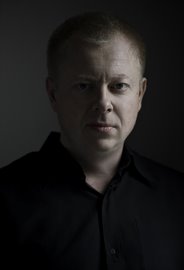Sputnik
10 November, 2020
A rocket remaining after the shelling of the city of Martuni (Khojavend), Nagorno-Karabakh, lies in a field, on 10 November, the day the peace agreement between Armenia and Azerbaijan came into effect.
Conflict between ethnic Armenians and Azerbaijan over the disputed region of Nagorno-Karabakh in the southern Caucasus resumed in September, after a lull of 30 years. In the 1980s, as the Soviet Union was crumbling, the ethnic Armenian majority in Nagorno-Karabakh, part of Azerbaijan, called for independence. Secessionist Armenians and Azerbaijani troops entered into a conflict that intensified during the 1990s, and continued until a ceasefire in 1994. More than 20,000 people died and a million people, both Armenian and Azerbaijani, were displaced. Victorious ethnic Armenians proclaimed a de facto independent state, naming it Artsakh. Over the next 30 years, the two sides maintained a tense coexistence, with periodic military clashes. A July 2020 border clash triggered massive protests in Azerbaijan’s capital, Baku, with thousands of demonstrators calling for the country to retake Nagorno-Karabakh. Hostilities, which each side blames the other for starting, were renewed on 27 September in what became known as the Second Nagorno-Karabakh War. Conflict continued until 9 November, the worst fighting the area had seen since the 1990s. In a settlement brokered by Russia in November, the parties agreed to cease hostilities. Azerbaijan regained possession of parts of Nagorno-Karabakh and the adjacent territories of Lachin, Kelbajar and Agdam, but the regional capital, Stepanakert, along with some other territories, remained under ethnic Armenian control. A corridor, patrolled by Russian peacekeepers, will connect Armenia to Stepanakert. Although fighting is over, reconciliation will prove difficult both to Armenians who feel they have lost their homeland and are now displaced, and to Azerbaijanis returning to a region ravaged by war.

Valery Melnikov
Valery Melnikov is a documentary photographer based in Moscow. He studied journalism in Stavropol, Russia and began his photographic career working for The North Caucasus news...